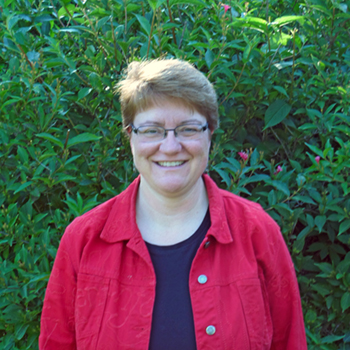

If you have spoken with me lately, it is likely that I mentioned the Inflation Reduction Act (IRA) at least four (or seven) times in our conversation. If that was annoying, buckle up because you can expect that I will be talking about the IRA a lot more going forward.
The IRA, which was signed into law in August 2022, is the single biggest investment any government has ever made in climate action. Bottom line, the legislation will make clean energy options cheaper than dirty fossil fuels through a myriad of tax cuts and incentives.
The legislation is a game changer here in Wisconsin because there will be funding to support increased energy efficiency and beneficial electrification. More, it creates opportunities to approach homes (and businesses) in a more holistic way, which will reduce the cost of upgrades while maximizing savings.
So of course I have been excited.
Last week I was at a conference in Washington, DC, the annual Behavior, Energy & Climate Change conference. Turns out I am not the only one who is excited about the possibilities associated with IRA. I spoke with local government staff, utility personnel, university researchers and others who were excited to see how the IRA could accelerate our progress toward a clean energy future.
Most compelling were the discussions of how the IRA might address systemic inequities in our energy systems. As discussed in the Dane County Climate Action Plan, the inequalities associated with climate change are well documented. Individuals locally and globally who have contributed the least to our climate crisis are often the ones who feel climate impacts more severely. From air quality to energy burden to extreme weather events, vulnerable households are disproportionately affected.
One of the most noteworthy speakers on this issue was Dr. Tony G. Reames, the Deputy Director for Energy Justice at the U.S. Department of Energy (DOE). Reames was previously an associate professor at the University of Michigan where he established the Urban Energy Justice Lab and the Energy Equity Project. Reames spoke at a Wisconsin event a few years ago and his work on energy-related disparities related to race, income and geography inspired the Wisconsin Public Service Commission to explore energy burden in Wisconsin.
Reames well understands the local challenges associated with poverty and energy burden so it was fascinating to hear him talk about how he is trying to break down silos at the DOE so that programs work better for real people, especially vulnerable people. None of this will be solved overnight, to be sure, but the IRA (and the Infrastructure Law before it) create an opportunity to think more holistically and to address the systemic inequalities in our current dirty energy system.
It will be a few more months before all the details of the IRA opportunities are clear and it might well be decades before we understand the full impacts of the IRA. Right now my focus is on ensuring that local thought leaders—in government, business, and advocacy—understand that the IRA can be a game changer that will create new opportunities to pursue energy efficiency, electrification and renewable energy.
The passage of the IRA makes achieving our clean energy future easier. So stay posted for more details (and yes, I will likely mention the IRA six or ten times when we talk next in person).

Kathy is the Director of the Dane County’s Office of Energy and Climate Change. In that role she's leading efforts to implement the Climate Action Plan. Prior to coming to Dane County, Kathy led Cool Choices and, prior to that, she led Wisconsin's Focus on Energy program.
The Dane County Office of Energy & Climate Change maintains this blog as a way to offer:
To be sure that you don't miss new blog entries, subscribe to our email updates.